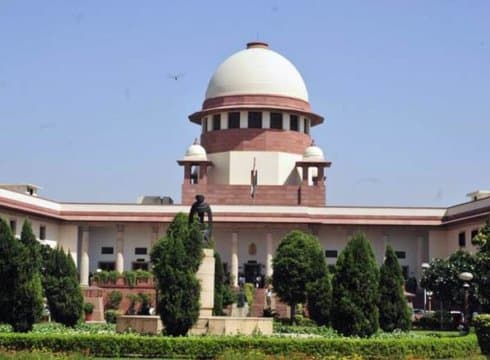Inc42 Daily Brief
Stay Ahead With Daily News & Analysis on India’s Tech & Startup Economy
With an aim to safeguard the right to freedom of speech & expression as well as the internet freedom, the Supreme Court has given a historical judgement by scrapping the Section 66A of the Information and Technology Act, which allows police to arrest people for posting “offensive content” on the internet.
The apex court has earned a lot of praise from every section of society for this commendable verdict. However, the court allowed the government to block websites if their content had the potential to create communal disturbance, social disorder or affect India’s relationship with other countries.
The court said that the public’s right to know is directly affected by Section 66A and the Section clearly affects the right to freedom of speech and expression enshrined under the Constitution of India. Not only this, the court also termed Section 66A as unconstitutional because it failed two major tests – the clear and present danger test and the tendency to create public disorder test.
During the hearing process, the court also found the language used in the Section vague and nebulous saying it doesn’t properly define words like ‘offensive’ or even ‘persistent’. On this, the court said that we can’t go by government assurances that the Section won’t be misused as any assurance would not bind on successive governments. Therefore, Section 66 A needs to be judged on its own merits.
Making it more clear, the court said that there is a difference between discussion, advocacy and incitement. Discussion & advocacy, no matter if annoying to some people, has to be allowed.
What Section 66A says:
“Any person who sends, by means of a computer resource or a communication device
- any information that is grossly offensive or has menacing character; or
- any information which he knows to be false, but for the purpose of causing annoyance, inconvenience, danger, obstruction, insult, injury, criminal intimidation, enmity, hatred or ill will, persistently by making use of such computer resource or a communication device,
- any email or email message for the purpose of causing annoyance or inconvenience or to deceive or to mislead the addressee or recipient about the origin of such messages, shall be punishable with imprisonment for a term which may extend to three years and with fine.”
Section 66A provides punishment for sending offensive messages through communication services.
These messages may be any information created, transmitted or received on a computer system, resource or device including attachments in the form of…
- Text
- Images
- Audio
- Video
- Any other electronic record which may be transmitted with the message
The law targets messages that…
- Are grossly offensive or menacing
- Proffer false information intending to cause annoyance, inconvenience, intimidation, insult, obstruction, etc.,
- Are intended at deceiving the addressee about the origin of the message
The law was amended in 2008 and received Presidential assent on February 5, 2009.
Recent controversies-
- Recently, a class 11 student was arrested for making a Facebook post about Uttar Pradesh cabinet minister Azam Khan.
- A tourism officer in Varanasi was arrested for uploading “objectionable” pictures of Mulayam Singh Yadav, Akhilesh Yadav and Azam Khan on Facebook.
- Ambikesh Mahapatra, a Jadavpur University professor, was arrested in Kolkata for forwarding a cartoon about Mamata Banerjee.
- In 2014, Goa police booked a young shipping professional for a Facebook post which said that the Prime Minister-elect Narendra Modi would start a holocaust in India.
- A man was arrested in Puducherry for tweeting that Karti Chidambaram, son of the then Union Minister P Chidambaram was ‘corrupt’.
- Shaheen Dhada and Rinu Shrinivasan were arrested in Palghar in Thane district as one of them posted a comment against the shutdown in Mumbai following Shiv Sena leader Bal Thackeray’s death and the other ‘liked’ it.
The mumbai incident had forced the apex court to come out with an advisory that a person, accused of posting objectionable comments on social networking sites, cannot be arrested without police getting permission from senior officers like the IG or the DCP.
The Supreme Court should have announced this judgement long time back, however our viewpoint is that “Its never too late to do such a commendable work.” Thanks to the apex court for working towards the freedom of speech.
{{#name}}{{name}}{{/name}}{{^name}}-{{/name}}
{{#description}}{{description}}...{{/description}}{{^description}}-{{/description}}
Note: We at Inc42 take our ethics very seriously. More information about it can be found here.


